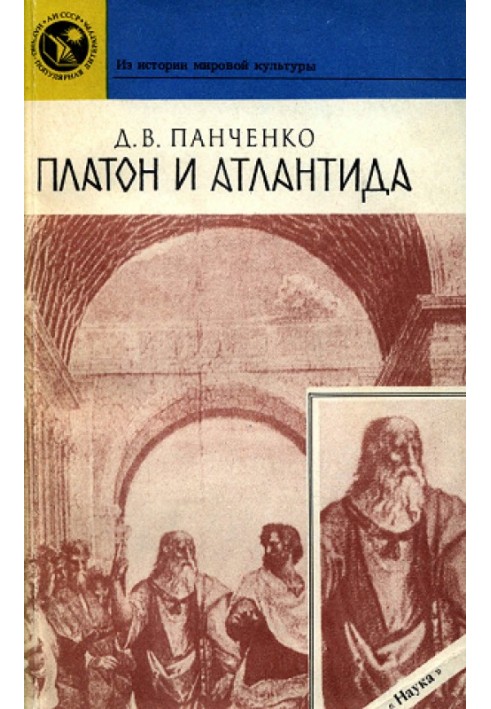Plato and Atlantis
 Instant download
Instant download
after payment (24/7)
 Wide range of formats
Wide range of formats
(for all gadgets)
 Full book
Full book
(including for Apple and Android)
The book is dedicated to the famous problem of Atlantis. The author introduces the reader to the historical and philological approach to solving this problem, revealing Plato's ideological and literary principles that determined the emergence and implementation of his plan. Based on sources, it is shown how Plato's story about Atlantis came to be and what allowed him to have such an influence on minds. The book is intended for a wide range of readers interested in ancient culture, as well as disputes about Atlantis. Table of contents: Preface 3Chapter I. Plato about Atlantis 5 Critias' story 5 The principle of plausibility 13 Philosophical myth 17Chapter II. Atlantis besides Plato? 24 Author's version 24 Evidence of the ancients: commentators of Plato 28 Evidence of the ancients: Aristotle, historians, geographers 33 Atlantis of Diodorus 35 Invasion from overseas 42 Lictonia and the trident of Poseidon 45 Chapter III. In search of lost civilizations 50 Echoes of distant events? 50 The country of Poseidon, which went under water 55 “Archaeology” by Plato 62Chapter IV. Atlantis and the Atlantic 80The sea beyond the Pillars of Hercules 80 Shoals, silt and the changing appearance of the earth 91 Name 108 Memory of Tartessus? 112Chapter V. Plato and Athens 125Plato and Athenian democracy 125 The State of Philosophers and the State of Friends 130 Critias 135Chapter VI. Athens and Atlantis: the nature of the antithesis 149 “Total opposite” 149 Double of the East 150 Mirror for Athens 152 The attraction of Atlantis 154 The charm of power 158 The imaginary world and the world that appears to the imagination 160 The Kings of Atlantis 162Chapter VII. “The likes of which have never happened before. . ." 166Plato's networks 166 Philosophical realism 170 Incompleteness of Critias 173Conclusion 177Notes 182Russian translations of ancient authors 187
Data sheet
- Name of the Author
- Дмитрий Панченко Вадимович
- Language
- Russian











